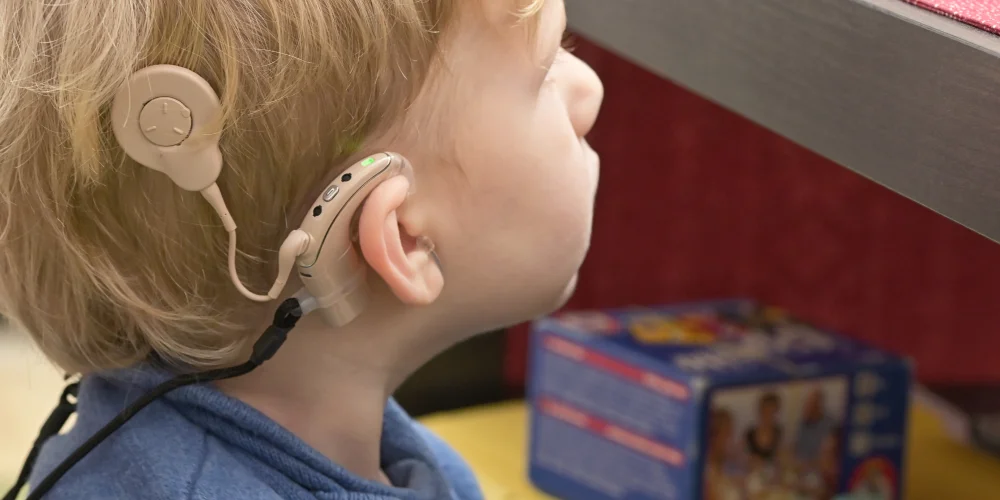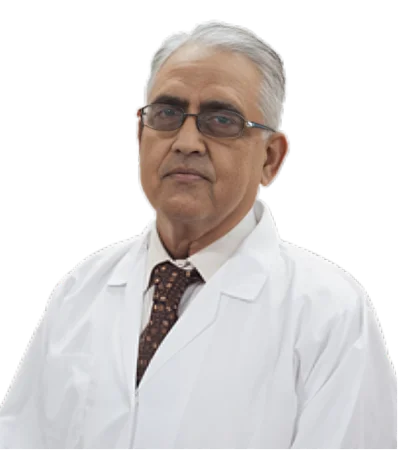Cochlear Implants Surgery
Restoring Auditory Function and Improving Quality of Life
Cochlear implants are advanced medical devices that are designed to give an auditory experience for those suffering from auditory loss, or even deafness. Contrary to conventional hearing aids, cochlear implants can bypass damaged areas in the ears and stimulate directly the auditory nerve. In Chirayu Super Speciality Hospital, we provide advanced cochlear implant surgeries performed by a group of highly experienced experts. Our goal is to improve hearing capacity, enhance communication skills, and increase the overall the quality of life of our patients.

What are Cochlear Implants?
The Cochlear Implants are devices made of electronic components that transform sound to electrical signals. These can then be sent straight to the auditory nerve. The system is comprised consisting of an external part (a microphone and a speech processor) and an internal one (a electrode array and receiver). The implant can bypass the damaged or non-functional components of the ear’s inner ear, stimulation of the auditory nerve and providing an auditory sensation. This is especially beneficial to those who don’t get the benefits of traditional hearing aids.
Who Performs Your Surgery?
Cochlear implant procedures in Chirayu Super Speciality Hospital are performed by highly experienced surgeons called otolaryngologists (ENT experts) and audiologists who have special training in the field of auditory implants. Our team is skilled at dealing with complex cases and employs modern techniques of surgery to ensure exact implant placement and the highest effectiveness of your implant. Our surgical staff is assisted by highly skilled anesthesiologists as well as nursing personnel, who provide comprehensive assistance throughout the procedure and afterward.
Types of Cochlear Implants
- Unilateral Cochlear Implants : Implanted in one ear to restore hearing in individuals with profound hearing loss in that ear.
- Bilateral Cochlear Implants : Implanted in both ears to provide a more natural hearing experience and improve localization of sounds and speech understanding.
- Hybrid Cochlear Implants : Combine cochlear implants with residual hearing preservation technology, allowing users to benefit from both electrical stimulation and acoustic hearing.
Symptoms Indicating the Need for Cochlear Implants
- Hearing loss that is severe to profound that doesn’t improve through conventional hearing aids.
- It is difficult to comprehend speech in different listening situations, even with an amplified.
- Inability to respond to auditory stimuli or the inability of hearing aids.
- Critical communication issues that affect the daily routine as well as social interaction.
Diagnosis for Cochlear Implants
Diagnostics begin with an exhaustive audiological assessment to determine the extent that a person has lost their hearing, and its effect on communication capabilities. The assessment comprises hearing test, assessments of speech and imaging studies like CT scans, or MRIs to assess the auditory and inner ear pathways. An in-depth consult to an ENT specialist will help determine whether cochlear implants would be the best option for the hearing profile of the patient and general health.
Treatment Process
The process for treatment comprises several steps. First, a thorough evaluation and consultation with an audiologist and ENT specialist to determine the possibility of being eligible to implant cochlear devices. The procedure is carried out under general anesthesia. the implant is inserted into the ear’s inner. Following the procedure it is inserted and programmed according to the specific needs of the patient’s hearing. Post-operative care involves controlling the process of recovery and adjusting the device and performing auditory rehabilitation in order to maximize the value that the device can provide.
Care and Recovery After Surgery
Recovery from surgery for cochlear implants includes a number of important aspects. It is recommended that patients stay off and avoid vigorous activities during the following weeks after the procedure. Post-operative treatment includes checking for any issues as well as managing pain and attending follow-up appointments to make adjustments to the device and programming. Auditory rehabilitation is vital for patients to adjust to their new hearing environment and to improve their listening skills. The majority of patients see improvements in their hearing within several weeks or months after they get used to hearing loss and complete their rehabilitation.
Advantages of Choosing Our Surgery Services
Expert ENT Team
Our experienced ENT specialists and audiologists provide comprehensive care, ensuring precise surgical placement and effective device programming for optimal hearing outcomes.
Personalized Rehabilitation
We offer tailored auditory rehabilitation programs to support patients in adapting to their new hearing capabilities and improving communication skills.
Holistic Support
Our multidisciplinary approach includes thorough pre-surgical evaluations, detailed post-operative care, and ongoing support to address all aspects of the cochlear implant journey.
What Our Patients Say
Read about our patients positive experiences and how Chirayu Super Speciality Hospital has positively impacted their health and well-being.


Chirayu cochlear implant surgery provided exceptional hearing restoration. The team’s expertise and care made a significant difference in my life.


Thanks to Chirayu, my hearing has been restored, and my quality of life has improved significantly. I’m grateful for their excellent care.


The cochlear implant has made a remarkable difference in my life. Chirayu team was incredibly skilled and supportive throughout the process.


Cochlear implant surgery at Chirayu was life-changing. I can hear and communicate better than ever. The care was exceptional!
Meet Our Medical Specialists
Our team of specialists provides expert cochlear implant care, offering advanced solutions and personalized support for enhanced hearing and communication.
Frequently Asked Questions
Here, we provide answers to some of the most commonly asked questions to help you better understand about our surgery services. If you have any additional questions, please do not hesitate to contact us.
A cochlear implant is an electronic device that provides a sense of sound by bypassing damaged parts of the inner ear and directly stimulating the auditory nerve.
The surgery involves placing an internal device into the inner ear and connecting it to an external processor that captures and transmits sound signals to the implant.
Candidates include individuals with severe to profound hearing loss who do not benefit from conventional hearing aids and have realistic expectations about the outcomes.
Cochlear implants are most effective for individuals with severe to profound sensorineural hearing loss. They may not be suitable for all types of hearing loss or for those with certain medical conditions.
Recovery includes managing pain, adjusting to the new device, and participating in auditory rehabilitation. Most patients experience improvements in hearing within a few weeks to months.



